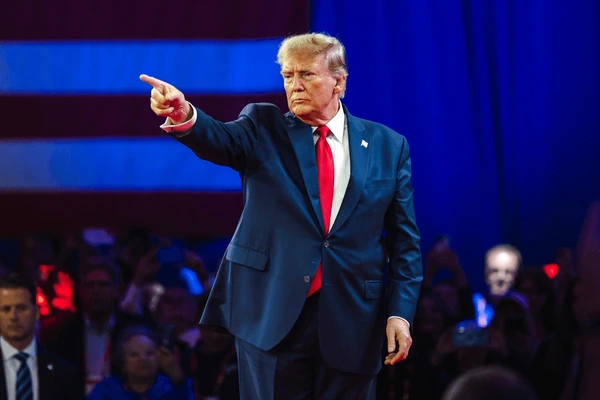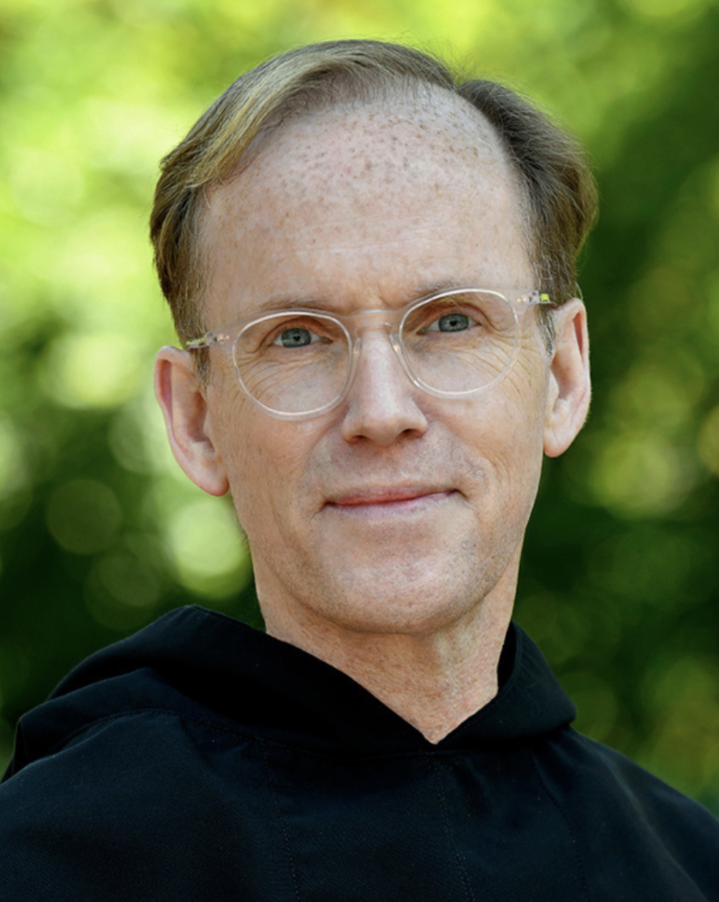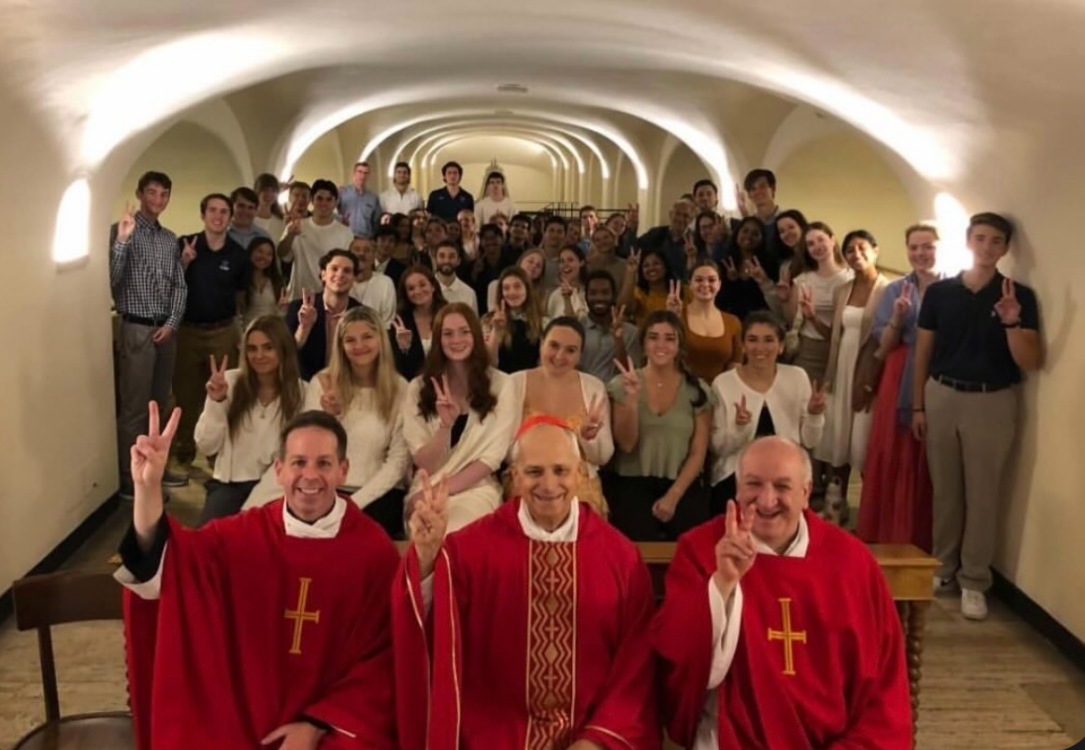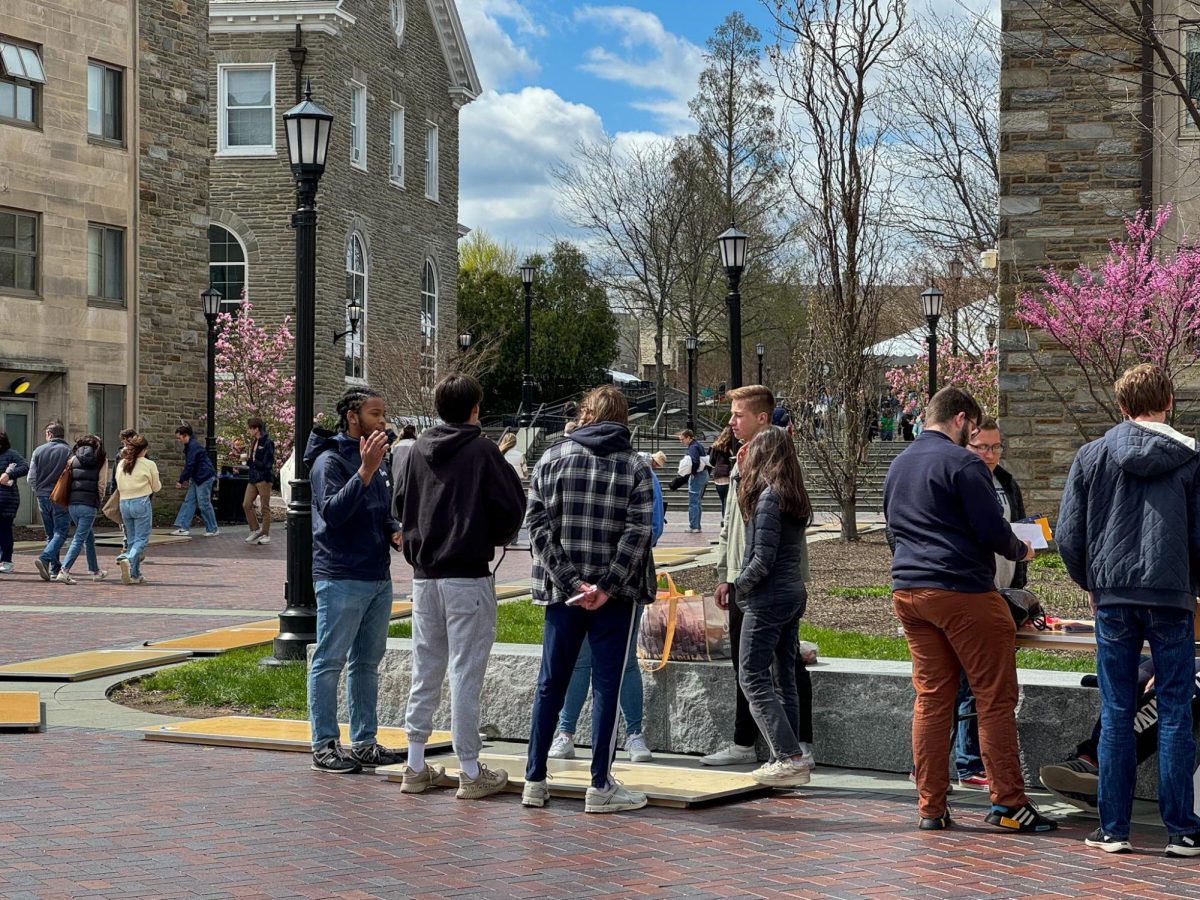
On Friday, March 21, 2025, the Villanova’s Communication and Global Interdisciplinary Studies departments welcomed students, faculty and staff for a casual, open Q&A discussion on the implications involved with recent federal executive orders by President Donald J. Trump. With 93 executive orders issued since January, the rapidly shifting politics have sparked confusion and concern among many members in the Villanova community, as well as across the nation. These orders have targeted a number of issues, such as diversity, equity and inclusion (DEI), immigration and higher education policy.
The event was organized by the Department of Communication’s Diversity Committee, and served as a space to analyze these changes, ask questions and support students who are attempting to navigate the uncertainty of these federal orders. Faculty speakers emphasized that many of these policies undermine academic freedom and the right to encourage education in a way that reflects diverse perspectives. The discussion also highlighted how these political shifts align with broader historical patterns that represent restrictive governance, specifically questioning experts and institutions.
A central theme of the conversation was the importance of Villanova’s mission and history in the face of these challenges. Villanova University was founded in 1842 and acted as a refuge for Catholic immigrants who faced discrimination and violence from so-called “nativists.” There was a valuable emphasis on the university’s core values of unitas, caritas and veritas, which emphasize inclusivity and respect for all.
Gordon Coonfield, a professor in the Communication Department, brought about concerns regarding the Villanova community, as well as the broader political atmosphere in the United States of America.
“Our whole system of government, our very nation, is founded on ‘self-evident’ truths that are created equal, that all have an ‘unalienable’ right to ‘Life, Liberty, and the pursuit of Happiness,’” Coonfield said. “Since when did all mean some? Since when did ‘unalienable mean available only at the whimsy of a precious authoritarian?”
Another key topic of the discussion involved the reinterpretation of student classifications for funding admissions, due to the recent “Dear Colleague” letter. While not legally binding, the document has already led to preemptive changes in some university programs, with many institutions fearing loss of funding. Attendees also expressed concerns over changes in immigration policy and the Department of Education’s evolving role, particularly in relation to accessibility and protections for international students.
Today, those values are reflected in Villanova’s commitment to ensuring accessibility support for students with diverse learning needs, providing educational opportunities for working parents and veterans, and encouraging cultural student organizations that allow students to understand and celebrate their identities.
Students in the group asked questions and made comments regarding the fact that these principles are now being put to the test with federal policies threatening to roll back long-standing protections and resources for marginalized communities.
Megan Cardwell, professor in the Communication Department, as well as a member of the Diversity Committee, helped organize the event and facilitated key aspects and concerns in the discussion. She emphasized that building intellectual community through open conversations is more critical now than ever.
“We cannot let fear and uncertainty stop us from living in our Augustinian mission and values to protect, serve and support one another – even when it doesn’t directly impact us – because make no mistake, someday a slow deterioration of human rights will impact us all,” Cardwell said.
Throughout the discussion there was a strong call for action. Faculty encouraged students to use their voices, whether through petitions, discussions or organizing, to advocate for their rights and the integrity of their education. They warned that the slow erosion of support systems and rights is often a strategy that is designed to create exhaustion and discourage hope and resistance.
“They’re trying to confuse and tire people out so that they won’t push back,” Coonfield said. “But everyone in this room has power and a voice.”
As policies continue to evolve, much of the future is unknown. But this event largely encapsulated a call to action to stay informed, engaged, and united. The discussions held were a key example of how collective dialogue and persistence can empower communities to navigate challenges and advocate for the values that define Villanova.






